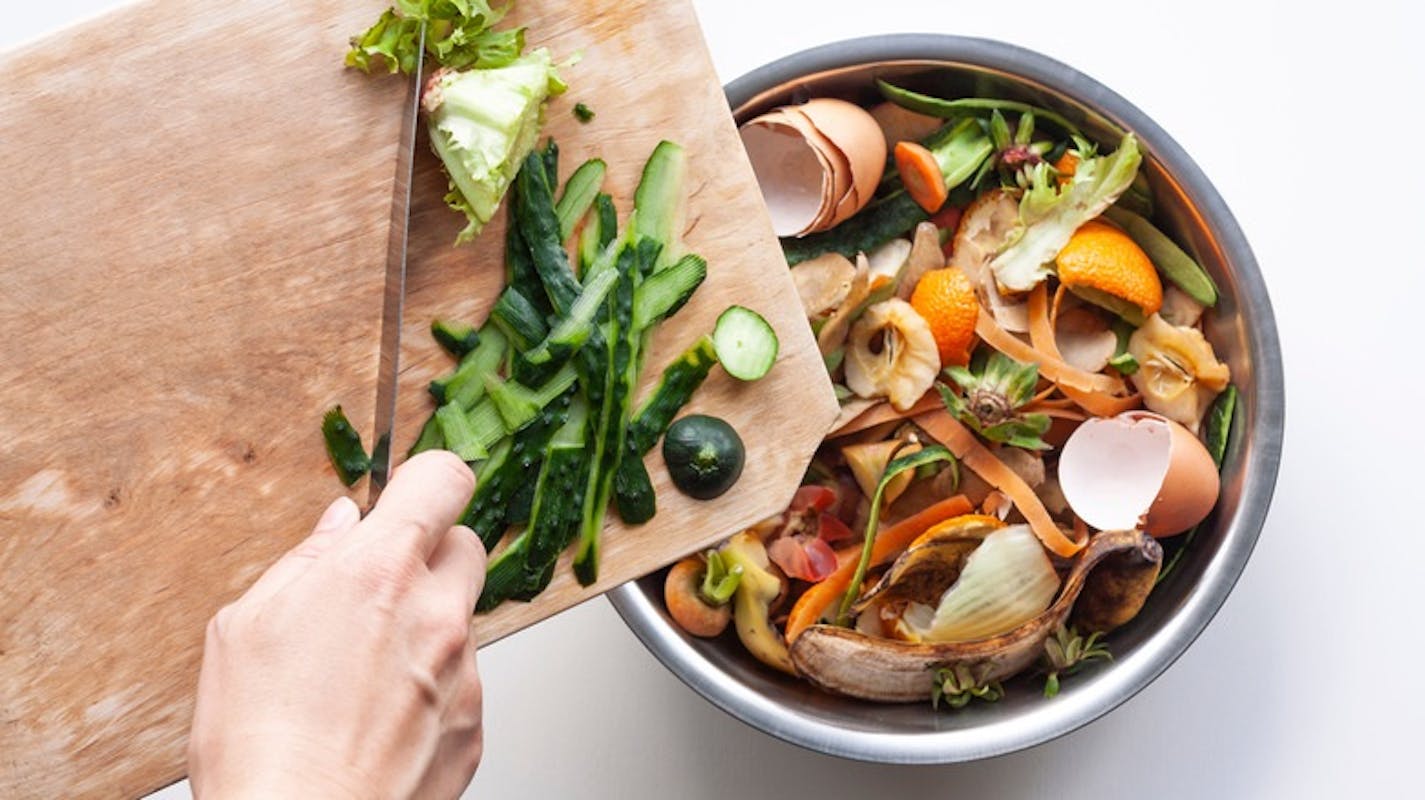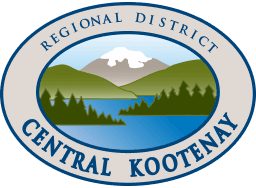
Industrial, Commercial, & Institutional Organic Waste Recycling
Overview
Learn more about opportunities for commercial organic waste recycling in the RDCK
We’re excited to launch this initiative to make it easier to participate in commercial organic waste recycling in the Nelson area and across the RDCK.
Program Details:
- A tipping fee subsidy has lowered the price for separated organic waste disposal at RDCK waste facilities, where organics disposal is available.
- A rebate of $400 for the purchase of collection containers and other supplies for setting up an organics program
- Available for the first 25 participating businesses in the Nelson area
- Technical support from the RDCK Organics Coordinator to get you set up with organics recycling in restaurants, grocery stores, and other settings
- including liaising with haulers, providing signage, training materials, guidance and advice to reduce barriers and help with the transition to organics recycling
Application requests for the Rebate program can be submit to the RDCK Organics Coordinator: organics@rdck.ca(External link)
RDCK Organic Waste Diversion Program:
With the investment of over $2 million in infrastructure to accept and process organic waste into compost, the RDCK is working towards reducing, and eventually eliminating the disposal of organic waste in our landfills. Organic waste diversion is a key goal of the RDCK due to environmental and operational necessities.
Organic Waste tipping fees are currently 68% lower than Mixed Waste ($55/tonne vs. $177.25/tonne). With a wide range of accepted materials, integrating organics recycling into your operations should be relatively cost effective and achievable.
There are currently four RDCK waste disposal facilities that accept separated organic waste.
- Grohman Narrows Transfer Station
- Ootischenia Landfill
- Central (Salmo) Transfer Station
- Creston Landfill
RDCK Compost Facilities are designed to accept both pre and post-consumer food wastes, including meat and small bones, dairy, solidified or absorbed oils and fats, soiled paper/cardboard, and 100% plant fiber food wares. All kitchen scraps are accepted. Both self-hauled and contractor hauled loads are accepted.
Head over to the Organics Diversion project page for more general info.
Additional Information:
In 2023, the RDCK completed a comprehensive waste composition study of our regional landfills. The results of this study are publicly available (full report here). IC&I garbage contained on average 35% compostable organic waste. The IC&I sector accounts for 48% of the waste disposed at RDCK landfills.
When organic waste is landfilled, it creates significant problems.
- It takes up finite space, impacting the capacity and lifespan of these costly sites
- It pollutes the environment by contributing to the generation of leachate (run-off from landfills)
- It creates greenhouse gasses
- When organic wastes rot in oxygen-poor environments (e.g. landfills), large amounts of methane are emitted
- Landfill-generated methane accounts for up to 23% of national methane emissions [1](External link). As a greenhouse gas, methane has a global warming potential more than 80 times greater than carbon dioxide over a 20-year period [2](External link).
For back and front of house support with implementation, the RDCK is working to provide resources. As well, RDCK staff are available for direct consultations and information sharing for operations interested in making these changes.
Speak to you hauler and request pricing and service options for collections. Haulers are currently looking to understand demand for services, so reaching out directly will encourage provision of competitive pricing and diverse service models.
Thank you for your time and participation in guiding expanded organic waste diversion and recycling.
Documents
Organics Recycling Guide - Commercial Sector
Commercial Waste Sorting Sign - 8x11
Commercial Sorting Sign - 11x17
Organics Bin Sign
Recycling Sign - 3 Materials
Recycling Sign - Carboard-Paper Only
Recycling Sign - Containers Only
Recycling Sign - Container-Glass
Recycling Sign - All Items
Landfill Items Sign
Signage Documents
Waste Sorting Signage
Commerical Sorting-Organics-V2
Commerical Sorting-Landfill-V2
Commercial-Waste-Sorting 8x11
Commerical Sorting-Recycle-3 Categories
Commerical Sorting-Recycle-Containers
Commerical Sorting-Recycle-RefundableGlass-V2
Commerical SortingRecycle-CardboardPaper
Commerical Sorting-Recycle-ALL
Learn more about opportunities for commercial organic waste recycling in the RDCK
We’re excited to launch this initiative to make it easier to participate in commercial organic waste recycling in the Nelson area and across the RDCK.
Program Details:
- A tipping fee subsidy has lowered the price for separated organic waste disposal at RDCK waste facilities, where organics disposal is available.
- A rebate of $400 for the purchase of collection containers and other supplies for setting up an organics program
- Available for the first 25 participating businesses in the Nelson area
- Technical support from the RDCK Organics Coordinator to get you set up with organics recycling in restaurants, grocery stores, and other settings
- including liaising with haulers, providing signage, training materials, guidance and advice to reduce barriers and help with the transition to organics recycling
Application requests for the Rebate program can be submit to the RDCK Organics Coordinator: organics@rdck.ca(External link)
RDCK Organic Waste Diversion Program:
With the investment of over $2 million in infrastructure to accept and process organic waste into compost, the RDCK is working towards reducing, and eventually eliminating the disposal of organic waste in our landfills. Organic waste diversion is a key goal of the RDCK due to environmental and operational necessities.
Organic Waste tipping fees are currently 68% lower than Mixed Waste ($55/tonne vs. $177.25/tonne). With a wide range of accepted materials, integrating organics recycling into your operations should be relatively cost effective and achievable.
There are currently four RDCK waste disposal facilities that accept separated organic waste.
- Grohman Narrows Transfer Station
- Ootischenia Landfill
- Central (Salmo) Transfer Station
- Creston Landfill
RDCK Compost Facilities are designed to accept both pre and post-consumer food wastes, including meat and small bones, dairy, solidified or absorbed oils and fats, soiled paper/cardboard, and 100% plant fiber food wares. All kitchen scraps are accepted. Both self-hauled and contractor hauled loads are accepted.
Head over to the Organics Diversion project page for more general info.
Additional Information:
In 2023, the RDCK completed a comprehensive waste composition study of our regional landfills. The results of this study are publicly available (full report here). IC&I garbage contained on average 35% compostable organic waste. The IC&I sector accounts for 48% of the waste disposed at RDCK landfills.
When organic waste is landfilled, it creates significant problems.
- It takes up finite space, impacting the capacity and lifespan of these costly sites
- It pollutes the environment by contributing to the generation of leachate (run-off from landfills)
- It creates greenhouse gasses
- When organic wastes rot in oxygen-poor environments (e.g. landfills), large amounts of methane are emitted
- Landfill-generated methane accounts for up to 23% of national methane emissions [1](External link). As a greenhouse gas, methane has a global warming potential more than 80 times greater than carbon dioxide over a 20-year period [2](External link).
For back and front of house support with implementation, the RDCK is working to provide resources. As well, RDCK staff are available for direct consultations and information sharing for operations interested in making these changes.
Speak to you hauler and request pricing and service options for collections. Haulers are currently looking to understand demand for services, so reaching out directly will encourage provision of competitive pricing and diverse service models.
Thank you for your time and participation in guiding expanded organic waste diversion and recycling.
Discussion
No discussions yet. Be the first to start one!
Questions
Ask a Question
You must be logged in to ask a question.
No discussions yet. Be the first to start one!
